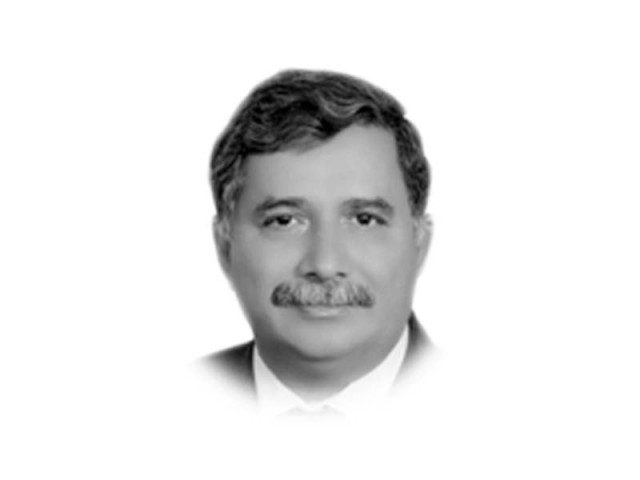Terrorism staging a comeback?
The situation has, however, not changed a bit as acts of terrorism continued with little respite

The writer is a former Secretary to Government on Home and Tribal Affairs and IG. He currently heads Good Governance Forum and can be reached at aashah7@yahoo.com
When counterterrorism operations were carried out in the tribal areas, it was widely anticipated that many terrorists would melt into the urban population. The Apex Committee of the province had, therefore, tasked the police with the responsibility of intelligence gathering about active and sleeper cells of militants. Although the main job of the police is to work on information and collect evidence connecting the suspect with the scene of crime, they have miserably failed to bring offenders to justice in most of the cases of violent extremism. It appears that little effort has been made to comprehend the strategic behaviour of terrorist outfits. The militants are organised in a cellular form in a hierarchical structure where each cell performs its own duty without the other cells knowing. In order to minimise the losses, they avoid confronting the organised forces, like the Army, and prefer remaining dormant till the situation is favourable. They wait for gaining space and thereafter reorganise, recruit, train, plan and then execute acts of terror by selecting targets of their choice. These tactics are again on display but we appear to be treating the symptoms and not the cause.
Taking Khyber-Pakhtunkhwa as a case study, credit must be given to the previous governments that responded proactively to the threat posed by non-state actors by enhancing the capacity of the police in terms of quantity and quality over the years. Its human resource strength has increased from 3,200 personnel in 2006 to 82,000 in 2019. While the credit goes to the police and other law-enforcement agencies to roll back insurgency in Swat, North Waziristan, Khyber Agency and other parts of the country, an uneasy peace with recurrence of acts of terror still continues.
While the state has opened its coffers to the police and other law-enforcement agencies, people are rightly questioning why terrorism does persist. To answer this, we should not take each event in isolation and at the tactical level, and consider it a part of the series of events orchestrated by the radical mindset which doesn’t distinguish any borders. Actors with this mindset have their own grand design of imposing their model of an Islamic emirate. In order to achieve their strategic goal, they use all tactics, including terrorism and negotiations. Their thinking is transnational, and they seek inspiration from the same leaders and have close nexus with such elements across the world, including Afghanistan. In this context, the major fault line in our governance has been the excessive use of religious card by propping up violent non-state actors with an ideological bearing in the past. These non-state actors are the ideological masters who are behind the whole scheme of things. Those in the execution role are just the foot soldiers mostly killed in the operations, who are quickly replaced by new recruits. This clearly demonstrates availability of social and physical space to their leaders who are able to recruit, plan, train and execute. Closely connected to this is the question: what is the impact of the growing influence of gun-toting Taliban indulging in all kinds of terrorism in Afghanistan? This has a direct social and political bearing on Pakistan as such imagery emboldens organisations having ideological affinity with them.
When all is said and done, the daunting challenges of terrorism and violent extremism must be analysed at the strategic level and the major fault line of governance should be addressed. This necessitates action against private militias and their ideological leaders fomenting extremism. The syllabi of academic institutions, training institutes and seminaries should be purged of all hate material that symbolises militant extremism. Unfortunately, this spread of radical discourse has been happening right under the nose of the interior ministry which has done little to implement the policy ideal of “zero tolerance for extremism across Pakistan”. Anti-extremism should have been on top of the agenda serving as an overarching strategic aim of the National Action Plan as terrorism is the product of an unbridled culture of extremism.
Lastly but more importantly, we should never forget that since this part of Pakistan has a geographical and cultural contiguity with Afghanistan, any increase in political influence of the jihadi mindset has a direct implication for the Pakistani society as well. Enduring peace, therefore, demands not only law-enforcement operations but also cutting the roots of extremism both in Pakistan and Afghanistan as a shared strategic policy ideal.
Published in The Express Tribune, April 24th, 2019.
Like Opinion & Editorial on Facebook, follow @ETOpEd on Twitter to receive all updates on all our daily pieces.















COMMENTS
Comments are moderated and generally will be posted if they are on-topic and not abusive.
For more information, please see our Comments FAQ